In today’s fast-paced business environment, Human Resource Management Systems (HRMS) have emerged as a pivotal tool for managing the intricate functions of human resources. As organizations seek to improve efficiency and foster a data-driven culture, the adoption of HRMS solutions is becoming increasingly prevalent.
However, the journey towards implementing an HRMS solution begins with a meticulously crafted agreement between the client organization and the service provider. The terms of this agreement can have long-lasting implications on operational efficiency, data management, and overall satisfaction with the HRMS. Hence, it’s imperative for organizations to pay close attention to several key points while engaging in this contractual relationship.
Importance of Explicitly Outlining Agreement Details
In any formal agreement, it is imperative to explicitly outline essential details to ensure clarity and enforceability.
Primarily, the agreement should identify the names of the parties involved, specifying the legal entities to avoid any ambiguity regarding responsibilities and obligations. Furthermore, the start date of the agreement should be clearly indicated to establish the temporal framework within which the services will be delivered.
A comprehensive description of the services to be provided is also critical, detailing the scope, deliverables, and expectations so that both parties have a mutual understanding of their roles and responsibilities. In situations where a company operates through multiple legal entities, it becomes necessary to draft separate agreements for each entity, since each one must adhere to its own statutory compliances and regulatory requirements.
This ensures that contractual obligations are met without conflict among the different entities involved. Additionally, the HRMS (Human Resource Management System) service provider are obligated to furnish both parties with clear and precise statutory information, including but not limited to Goods and Services Tax (GST) implications. Such transparency not only helps in maintaining compliance with tax regulations but also builds a foundation of trust and accountability between the parties. Overall, clarity and specificity in these contractual elements are essential for a successful partnership and for mitigating potential legal challenges in the future.
Importance of Specifying Agreement Duration for HRMS Implementation
When entering into an agreement for a Human Resource Management System (HRMS), it is crucial to clearly define the duration of the contract, taking into account the client’s preferences and the specific context of the organization. Since this will be the organization’s first experience with an HRMS platform, it is advisable to opt for a short-term agreement.
This approach allows the organization to evaluate the effectiveness of the service provider in meeting their requirements without being locked into a long-term commitment.
Should the HRMS service provider fail to deliver satisfactory results, the organization retains the flexibility to terminate the agreement and explore alternative software solutions that may better align with their needs. Thus, a well-defined duration not only mitigates risk but also empowers the organization to make informed decisions regarding their HRMS strategy.
Ensuring Data Security and Reliability in HRMS Software
Cloud-based Human Resource Management System (HRMS) software offers organizations the flexibility and efficiency needed to manage their HR functions. However, it is imperative that service providers assure clients of the safety and security of their data. This includes commitments to minimal downtime and rapid data recovery capabilities.
Organizations should expect robust lost data recovery assurances and the provision of necessary safety certifications from their HRMS providers, ensuring that sensitive employee information is well-protected and recoverable in a timely manner.
Ownership Division in HRMS Agreements
In an HRMS service agreement, it is essential to delineate ownership rights clearly. The customer retains control over their personal data, ensuring they have authority over how their information is managed and utilized.
Conversely, the HRMS service provider maintains ownership of the software and its associated intellectual property, safeguarding their technological assets and innovations. This clear separation of ownership helps to mitigate potential conflicts and establishes a framework for data privacy and software utilization.
Responsibility of the Customer in Software Access
The customer holds the responsibility for ensuring that any approved entities they authorize to use the software comply with all terms and conditions of the agreement. Should an approved entity breach these terms, it is regarded as a violation on the part of the customer.
Therefore, it is crucial for the organization to carefully consider and monitor any access granted to third parties, as they ultimately remain accountable for any misuse or noncompliance.
Importance of Transparent HRMS Updates and Upgrades
An effective Human Resource Management System (HRMS) is essential for the smooth functioning of an organization, and it is crucial that the service provider maintains clear communication regarding updates and upgrades. Regular notifications about enhancements ensure that organizations can leverage new features to improve their HR processes.
Additionally, it is vital that these updates are provided without imposing extra charges, as unexpected costs can strain resources and hinder operational efficiency. When new modules are introduced, organizations should have the right to integrate these features seamlessly into their existing systems, allowing them to adapt and grow without feeling burdened by additional expenses.
This approach not only fosters a collaborative relationship between the service provider and the organization but also enhances the overall user experience and satisfaction.
The importance of pricing while the process of Agreement
When finalizing an agreement with an HRMS service provider, it is essential to specify the rates at which the HRMS platform is selected. Additionally, if customization options are available, the corresponding rates should be clearly stated.
It is important to note that the HRMS platform rates may be revised annually to reflect economic changes; therefore, the percentage by which the rates will be adjusted should also be included in the agreement. This clarity ensures transparency and protects both parties from potential disputes in the future.
Data Confidentiality Obligations of HRMS Service Providers
HRMS (Human Resource Management System) service providers handle sensitive organizational data, including payroll and personal employee details. It is imperative that they maintain strict confidentiality and refrain from disclosing any such information to third parties.
Breaching this confidentiality can result in significant consequences for the service provider, including legal penalties and compensation charges imposed by the organization. Such violations not only threaten financial stability but can also damage the provider’s reputation and trustworthiness in the market, potentially leading to the loss of current and future clients.
Conclusion
When entering an HRMS Service Provider Agreement, several key considerations must be addressed to ensure a successful partnership. It’s crucial to evaluate the service provider’s reputation, scalability of the software, data security measures, and the extent of customer support offered. Additionally, understanding the terms of service, including pricing structures and contract length, will help avoid potential pitfalls.
As HRMS Adda by FlexiEle delves into comprehensive insights about HR management software and technology, organizations can make informed decisions that align with their specific needs, ultimately enhancing their HR processes and efficiency. In conclusion, a meticulous approach to selecting an HRMS provider is essential for maximizing the benefits of such systems in modern workforce management.
Read More:

